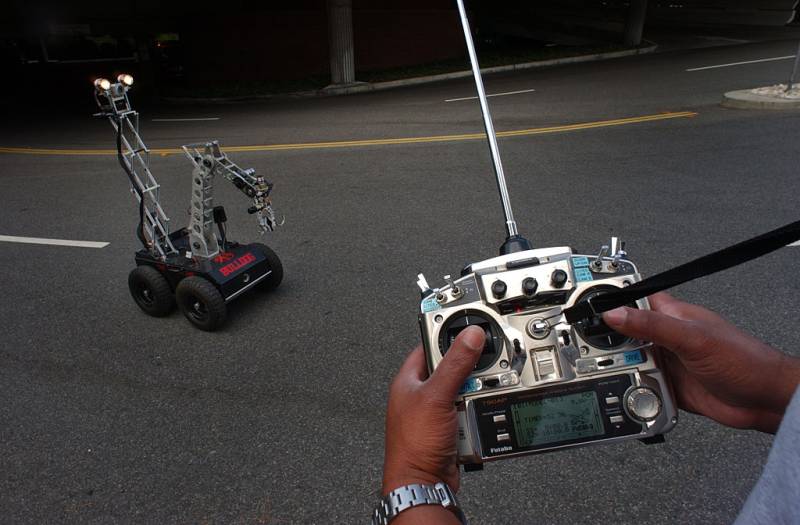"Robots equipped in this manner would only be used in extreme circumstances to save or prevent further loss of innocent lives," she said.
Supervisors amended the proposal Tuesday to specify that officers could use robots only after using alternative force or deescalation tactics, and concluding they would not be able to subdue the suspect through those alternative means. Only a limited number of high-ranking officers could authorize use of robots as a deadly force option.
San Francisco police currently have a dozen functioning ground robots used to assess bombs or provide eyes in low-visibility situations, the department said, noting they were acquired between 2010 and 2017, and have not once been used to deliver an explosive device.
But a new California law that went into effect this year requires police and sheriff's departments to inventory military-grade equipment and seek explicit authorization for their use.
Authored last year by San Francisco City Attorney David Chiu when he was still an Assembly member, the law is aimed at giving the public a forum and voice in the local government acquisition and use of military-grade weapons.
Supervisor Connie Chan, who forwarded the proposal to the full board, and on Tuesday voted for it, said she understood concerns over use of force but that "according to state law, we are required to approve the use of these equipments. So here we are, and it’s definitely not an easy discussion."
A federal program has long dispensed grenade launchers, camouflage uniforms, bayonets, armored vehicles and other surplus military equipment to help local law enforcement.
In 2017, then-President Donald Trump signed an order reviving the Pentagon program after his predecessor, Barack Obama, curtailed it in 2015, triggered in part by outrage over the use of military gear during mass protests in Ferguson, Missouri, following the shooting death of 18-year-old Michael Brown.
San Francisco police said late Tuesday that no robots were obtained from military surplus, but some were purchased with federal grant money.
Like many places around the U.S., San Francisco is trying to balance public safety with hallowed civil liberties such as privacy and the ability to live free of excessive police oversight. In September, supervisors agreed to a trial run allowing police to access in real time private surveillance camera feeds in certain circumstances.
Debate on Tuesday ran more than two hours, with advocates for both sides accusing the other of reckless fearmongering.
"I find it really shocking that just two years after our nation collectively recognized that police were using unjustified deadly force against people, disproportionally against Black and Brown people, that we're having a conversation about letting SFPD adopt a policy, and with approval from this body, that would allow them to use robots to kill," said Supervisor Dean Preston, who voted against the policy, joining Supervisor Hillary Ronen and Board President Shamann Walton.
Supervisor Rafael Mandelman, who voted in favor of authorization, said he was troubled by rhetoric painting the police department as untrustworthy and dangerous.
“I think there’s larger questions raised when progressives and progressive policies start looking to the public like they are anti-police,” he said. “I think that is bad for progressives. I think it’s bad for this Board of Supervisors. I think it’s bad for Democrats nationally.”
Walton pushed back, saying his opposition was not anti-police, but rather "pro people of color."
“We continuously are being asked to do things in the name of increasing weaponry and opportunities for negative interaction between the police department and people of color," he said. "This is just one of those things."
The San Francisco Public Defender's office sent a letter Monday to the board arguing that granting police "the ability to kill community members remotely" goes against the city's progressive values. The office beseeched the board to reinstate language barring police from using robots against any person in an act of force.
Across the bay, the Oakland Police Department recently scrapped consideration of a similar proposal after public backlash.
The first time a robot was used to deliver explosives in the U.S. was in 2016, when Dallas police sent in an armed robot that killed a holed-up sniper who had killed five officers in an ambush
